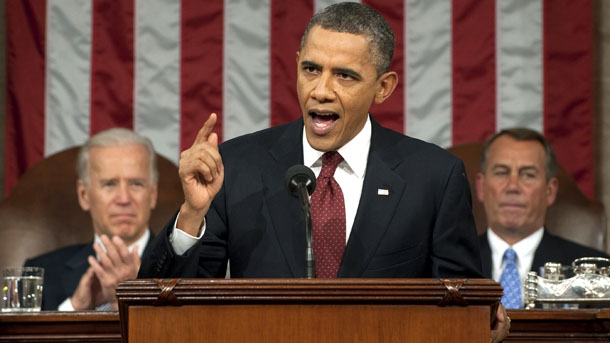WASHINGTON D.C.—A congressional report reveals that US President Barack Obama has the authority to waive off many existing sanctions against Burma and could make his decision based on the fallout from Sunday’s historic by-elections.
The release of remaining political prisoners would also be a decisive factor in the future of restrictive measures, according to the latest report on Burma by the Congressional Research Service (CRS), an independent wing of the US Congress that prepares periodic reports on issues of interest to the nation’s lawmakers.
“The response of the Obama administration to Burma’s by-elections will depend on the conduct of the campaign, the balloting process, the veracity of the official election results, and possibly on how the winners of the elections are treated once they become members of Burma’s Parliaments,” said the 10-page report titled Burma’s April Parliamentary By-Elections.
Dated March 28, a copy of the report was obtained by The Irrawaddy on Sunday. “In addition, the response of opposition parties—particularly the NLD [National League for Democracy] and its chairperson Aung San Suu Kyi—other nations and the EU to the by-elections may influence the US response,” the CRS said.
“Under current law, President Barack Obama has the authority to waive many, but not all, of the existing sanctions on Burma, and he may choose to exercise that authority following the by-elections,” it said. Alternatively, the White House may ask Congress to consider legislation removing or altering some existing sanctions. For its own part, Congress may decide to re-examine US policy towards Burma and make whatever changes it deems appropriate, the report said.
“The Obama administration has already begun consultations with Congress on the future development of US policy towards Burma. During the period prior to and after the by-elections, Congress may decide to conduct hearings and undertake other forms of investigation into the situation in Burma in preparation for its response to a request from the Obama administration,” the report said.
Observing that the April parliamentary by-elections provides Naypyidaw with another opportunity to demonstrate their commitment to political reform and national reconciliation, the report also said Congress will be provided with more evidence by which to assess the present situation in Burma and to possibly re-examine current US policy.
One of the key issues likely to be considered is the criteria by which to assess the by-elections. “Events to date demonstrate that the elections will not achieve internationally recognized standards for free and fair elections,” said the report released for US lawmakers before the April 1 ballot.
“The exclusion of some political parties, constraints on campaigning activities, and censorship of campaign speeches and materials already violate expectations for free and fair elections. In the end, the question will be if the by-elections are sufficiently free and fair to warrant some response by the United States,” it said.
“Another likely key issue is the establishment of the criteria by which to select and construct such a US response. One criterion used in the past has been the rewarding of positive developments by providing Burma with something it desires,” the CRS said.
A second criterion suggested is to respond in a manner that is expected to encourage or create incentives for the Burmese government to undertake further reforms. A third criterion is to take actions that bolster the political power or authority of Burmese officials identified as being pro-reform, and/or undermine the power or authority of Burmese officials viewed as being barriers to progress in Burma, it said.
Yet another criterion for the formation of the US response has been discussed, but it may benefit Congress to consider its goals and objections when taking up the issue of a possible response to the April by-elections, the CRS said.
















